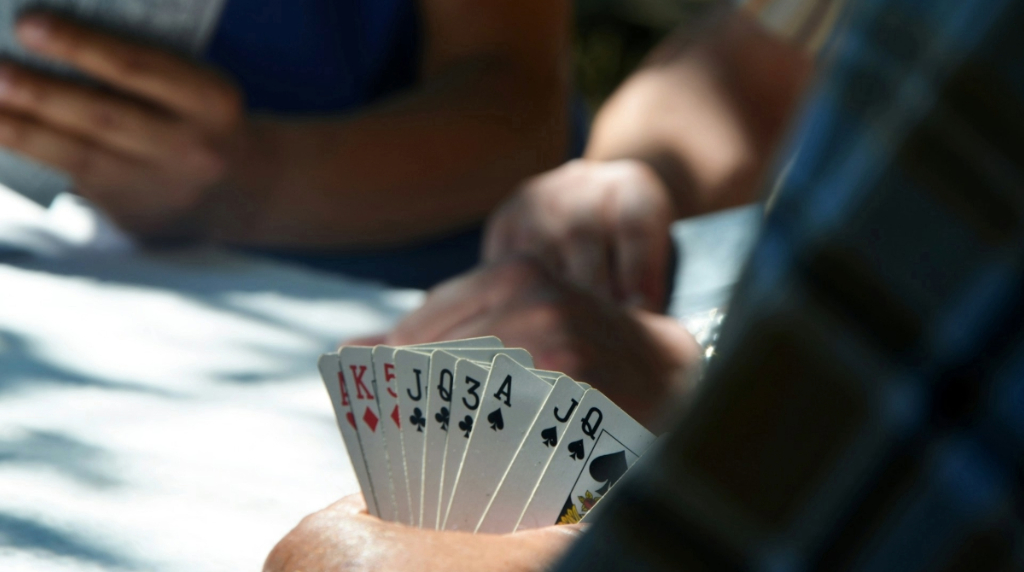Card Rooms in California Face New Legal Fight and Tribal Pressure
California’s Attorney General has had many chances to take the off-ramp on changes he proposed to the rules governing California’s card rooms, which provide tens of thousands of jobs and much-needed tax revenue for cities. But he appears to be doubling down instead.

New laws may be coming for California’s Poker Clubs. © Ines Ferrreira, Unsplash
Key Facts:
- AG Rob Bonta is poised to upend the California Card Room business
- His proposed changes would end blackjack in hundreds of casinos
- It would also change the player-banker rules in place for decades
- The Card Rooms face another looming threat from a Tribal lawsuit
The wheels of justice may grind slow in Indian country, but they grind exceedingly fine. And by all accounts, California’s card rooms are facing a reckoning.
The roots of this go all the way back to 1873 when California first made the game of 21 illegal. However, we will pick up the story in 1978, when Proposition 13 was passed, limiting the amount a California city could hike property taxes. Just as today, when County and City governments need revenue, it can often lead to strange bedfellows.
Poker and raked games not played against a dealer had been more or less legal for about a hundred years at this point in the Golden State, and while some city governments had authorized “card clubs”, most had ostracized them, but that would quickly change as the 70s wore on.
Governments across the state found themselves shorter and shorter on cash flow. For more than thirty years, card rooms across the State provided much-needed tax revenue for cities like Gardena, Commerce, and San Jose, long before the passage of the Indian Gaming Regulatory Act in 1988.
It would, in fact, actually take California’s tribes to the passage of Prop 1A in 2000 before they won the right to Class III gaming, which allows slots, blackjack, and most other traditional casino games. More importantly, the measure, which passed with 65% of the vote, awarded the tribe exclusive rights to offer Nevada-style casino gaming.
Card Rooms and California Blackjack
To be clear, banked games played against the house had remained illegal, even as poker and newer games like Pai Gow Poker swept across the State in the 1980s. However, many cities and counties had turned to card rooms to keep the lights on. By 1990, the increasing competition was starting to take a toll.
They say necessity is the motherhood of invention, and that was clearly the case for Roger Wisted and his new game of California Blackjack. Invented in 1989, this form of blackjack was not played against the house, but rather, players took turns acting as the bank.
There were some other tweaks to the rules, but the important thing was that it was not considered a banked game.
All parties accepted this legal artifice; gamblers loved it because now they could play a form of blackjack without a four-hour drive over to Las Vegas, and the card rooms loved it.
After all, it almost doubled their revenue overnight, and, of course, the cities were prepared to look the other way, as places like Gardena and Commerce saw half their budgets come from tax revenue on the card rooms.
However, with their newly minted mandate as the only ones to offer Las Vegas-style gaming in general and blackjack in particular, the Tribes didn’t like it initially.
That disdain only grew over the last twenty years as almost all card rooms reverted to using something called Third Party Providers of Player Proposition Services (TPPPS), which is a fancy way of saying card rooms found investors to act as the bank instead of offering the opportunity to the players at the table.
However, being Sovereign nations of their own, they could only flex their large political donations and lobbying power, as they were constitutionally barred from filing a civil suit.
However, beginning in 2023, all that money and power finally coalesced into some actionable opportunities. First Attorney General Rob Bonta, first elected in 2020, took a very hard look at both California Blackjack and the close relationships between the card rooms and the companies offering TPPPS.
And then, in late 2024, SB 549 passes. The Tribes had attempted to put the matter to a vote in 2022 with Proposition 26, which would have allowed tribal members to sue card rooms for offering games like blackjack, but it was soundly rejected.
However, as it is wont to do sometimes, the California legislature ignored the electorate’s will and offered the Tribes a brief window to bring a suit about the legality of the issue, though interestingly, they were forbidden from seeking damages.
A Two Front War
So, in 2025, both the card rooms and cities like Hawaiian Gardens, which receives 78% of its general fund from gaming revenue, and Commerce, which receives more than 50%, face a double-edged threat.
The Tribal Nations Access to Justice suit, named almost 100 card rooms and TPPPS operators, was joined by dozens of tribes and is slowly winding its way through the Sacramento Superior Court.
With the resources available between the tribes and the card rooms, a legal battle like this may drag on for years.
This would probably suit the card rooms and the citizens who rely on them just fine, but Player Two has entered the match in the form of an AG who seems determined to dismantle the current system of TPPPS and, quite possibly, California blackjack as well.
AG Bonta has made his position clear in several rounds of proposed new rules for the card rooms. He believes that blackjack, even California blackjack, is not a legal, raked card game and has set up more than a dozen rules that would effectively end the game.
He has also said that the current system of TPPPPS offered by most California card rooms, where an operator’s employees will offer to bank every game on the floor, whether or not they are currently playing on the game, violates the spirit of the original rules. This called for the banker to be engaged on the table, despite several precedents over the years which found differently.
The last public comments on these rules ended Thursday, and it is fair to say that the cardrooms, their employees, and many of their customers made themselves heard. The AG Bonta impact assessment indicates the problem. Card rooms stand to lose more than 50% of their business and approximately $400 million a year in revenue, according to the State’s own rather conservative forecast.
Many card rooms would close, and many cities would find themselves on the brink of insolvency; thousands, perhaps tens of thousands, of employees would find themselves out of work. However, the Tribes and Mr. Bonta argue that they are merely trying to enforce the state’s laws.
But whether it’s a long-due correction or a calculated power play, AG Bonta has left California’s card rooms and all those who count on them with a very uncertain future.

 Reelplay’s Pearl Reef Gigablox Multimax Coming to Online Casinos
Reelplay’s Pearl Reef Gigablox Multimax Coming to Online Casinos
 Spin the Reels of the Pharaoh’s Last Wish Slot from Relax Gaming
Spin the Reels of the Pharaoh’s Last Wish Slot from Relax Gaming
 Stormcraft Studios’ New Slot Thunderstruck Stormblitz Out Now
Stormcraft Studios’ New Slot Thunderstruck Stormblitz Out Now
 F1 Is Back, Starting With Netflix’s Drive to Survive on Friday
F1 Is Back, Starting With Netflix’s Drive to Survive on Friday